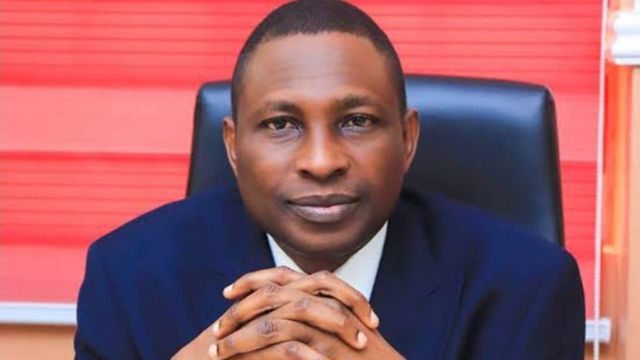
President Bola Tinubu has appointed Mr. Ola Olukoyede as the Executive Chairman of the Economic and Financial Crimes Commission (EFCC), with his appointment pending confirmation by the Senate. Here are 10 key facts about Mr. Olukoyede and the recent appointments:
Appointment and Confirmation: President Tinubu appointed Ola Olukoyede as the EFCC Executive Chairman, a position set for a renewable term of four years, subject to Senate confirmation.
Statutory Authority: The appointment aligns with the powers vested in President Tinubu as per section 2 (3) of the Economic and Financial Crimes Commission (Establishment) Act, 2004.
Professional Background: Mr. Olukoyede is a lawyer with a rich professional background, boasting over 22 years of experience as a regulatory compliance consultant and a specialist in fraud management and corporate intelligence.
Previous EFCC Roles: He has extensive experience within the EFCC, having previously served as the Chief of Staff to the Executive Chairman (2016-2018) and as the Secretary to the Commission (2018-2023).
Resignation of Previous Chairman: The appointment follows the resignation of the suspended Executive Chairman of EFCC, Mr. Abdulrasheed Bawa.
Additional Appointment: President Tinubu also appointed Mr. Muhammad Hassan Hammajoda as the Secretary of EFCC for an initial renewable term of five years, pending Senate confirmation.
Professional Background of Hammajoda: Mr. Hammajoda is a public administrator with expertise in public finance management. He holds a Bachelor of Science degree in Accounting from the University of Maiduguri and a Masters in Business Administration from the same university.
Career Progression: Hammajoda began his career as a lecturer at the Federal Polytechnic, Mubi, then transitioned into banking, having successful stints at the defunct Allied Bank and Standard Trust Bank.
Charge to the New Leadership: The President emphasized the importance of the EFCC’s renewed vigor in the fight against corruption and urged the new leadership to uphold the confidence placed in them.
Anti-corruption Agenda: The reformed institutional architecture in the anti-corruption sector remains a pivotal pillar of President Tinubu’s Renewed Hope agenda, signifying the significance of the EFCC’s role in this initiative.
Rice, a staple for Christmas celebrations in Nigeria, has become a luxury this year. Soaring…
Panic erupted on Saturday at a concert in Lagos when the stage collapsed during Odumodublvck’s…
The Federal Government of Nigeria has allocated ₦6,364,181,224 billion for the refurbishment and rehabilitation of…
The black market dollar to naira exchange rate for today, 22nd December 2024, can be…
The Nigerian National Petroleum Company Limited (NNPCL) has refuted claims that the 60,000 barrels per…
Manchester City finds itself in unprecedented turmoil, with relegation-level form showing little sign of improvement.…